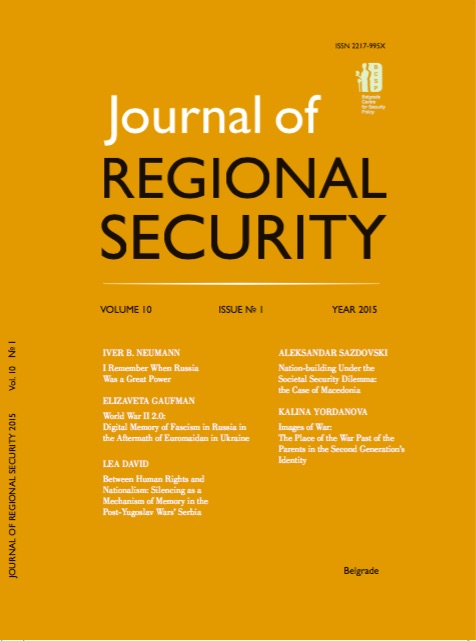Between Human Rights and Nationalism: Silencing as a Mechanism of Memory in the Post-Yugoslav Wars’ Serbia
Between Human Rights and Nationalism: Silencing as a Mechanism of Memory in the Post-Yugoslav Wars’ Serbia
Author(s): Lea DavidSubject(s): Politics / Political Sciences
Published by: BCBP Beogradski centar za bezbednosnu politiku
Keywords: Serbia; contested past; international demands; mechanisms of silencing
Summary/Abstract: Just as norm-complying states adapt their practices to expected behaviors, post-conflict states are forced to adapt their practices and rhetoric to better resist pressures to comply with particular norms. Building on this insight, this paper analyzes three mechanisms through which the ruling elite in present day Serbia strategically constructed commemorative arenas for the purpose of dealing with the opposing demands and norms made both on the international as well as the national level: 1) de-contextualization of memory contents, 2) creation of social narratives of suffering and 3) promotion of the Holocaust memory as a screen memory. These are strategies of silencing which prevent public debate, representation, negotiation and are intended to reduce the tension between the contradicting demands at the international and the domestic levels. I suggest that the gap between the local and global forces and the changing role of the state, makes it possible for memory content to become a currency, a means of achieving certain real or symbolic benefits.
Journal: Journal of Regional Security
- Issue Year: X/2015
- Issue No: 1
- Page Range: 37-52
- Page Count: 16

